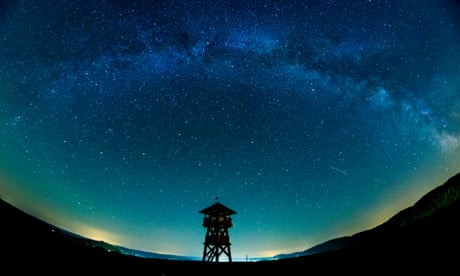Yoshinori Ohsumi, 71, will receive the prestigious 8m Swedish kronor (£718,000) award for uncovering “mechanisms for autophagy”, a fundamental process in cells that scientists believe can be harnessed to fight cancer and dementia.
Autophagy is the body’s internal recycling programme - scrap cell components are captured and the useful parts are stripped out to generate energy or build new cells. The process is crucial for preventing cancerous growths, warding off infection and, by maintaining a healthy metabolism, it helps protect against conditions like diabetes.
Yoshinori Ohsumi wins Nobel prize in medicine – as it happened
Read more
Dysfunctional autophagy has been linked to Parkinson’s disease, type 2 diabetes, cancer and a host of age-related disorders. Intense research is underway to develop drugs that can target autophagy to treat various diseases.
Speaking to reporters in Tokyo on Monday, Ohsumi said: “As a boy, the Nobel Prize was a dream, but after starting my research, it was out of my picture.”
Advertisement
He said he chose to focus on the cell’s waste disposal system, an unfashionable subject at the time, because he wanted to work on something different.
“I don’t feel comfortable competing with many people, and instead I find it more enjoyable doing something nobody else is doing,” he added. “In a way, that’s what science is all about, and the joy of finding something inspires me.”
Ohsumi, who was in his lab when he received the phone call from Thomas Perlmann, secretary of the Nobel Committee, admitted to being in a “slight state of shock” about the news.
The word autophagy originates from two Greek words meaning “self-eating”. It refers to the process in which cellular junk is captured and sealed in sack-like membranes, called autophagosomes. The sealed contents are transported to another structure called the lysosome, once considered little more than the cellular rubbish bin.

Sign up for Lab Notes - the Guardian’s weekly science update
Read more
By studying the process in yeast cells, Ohsumi identified the main genes involved in autophagy and showed how the proteins they code for come together to build the autophagosome membrane. He later showed that a similar cellular recycling process occurs in human cells - and that our cells would not survive without it.
Juleen Zierath, a member of the Nobel committee, said: “Every day we need to replace about 200 to 300g of protein in our bodies… We are eating proteins every day, about 70g, but that’s not enough to take care of the requirement to make new proteins. Because of this machinery, we’re able to rely on some of our own proteins, maybe the damaged proteins or the long-lived proteins, and they are recycled with this sophisticated machinery so that we can sustain and we survive.”




